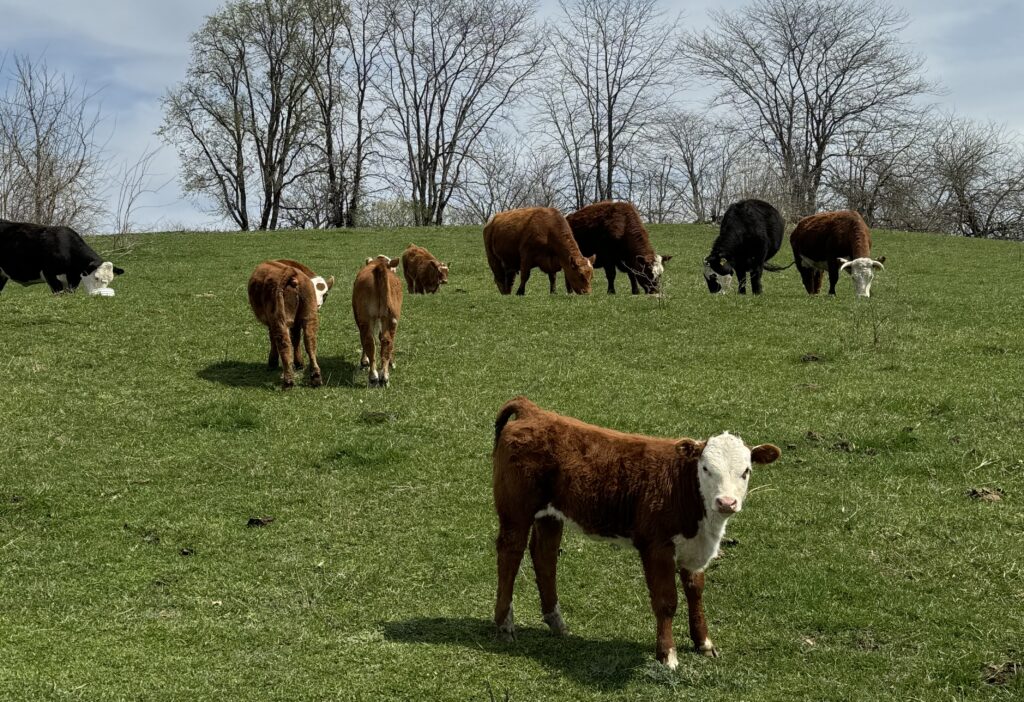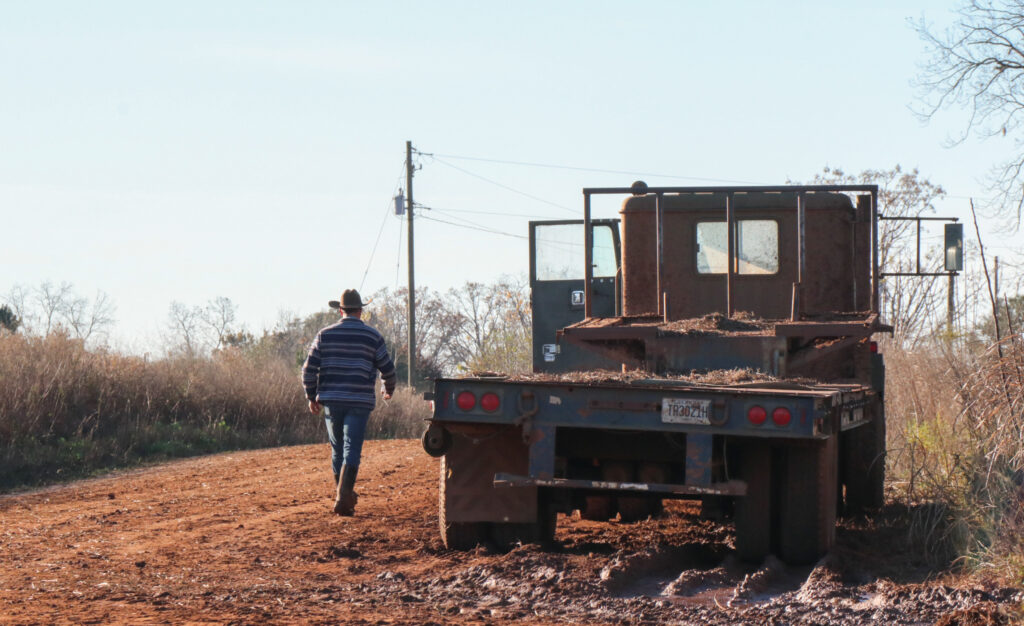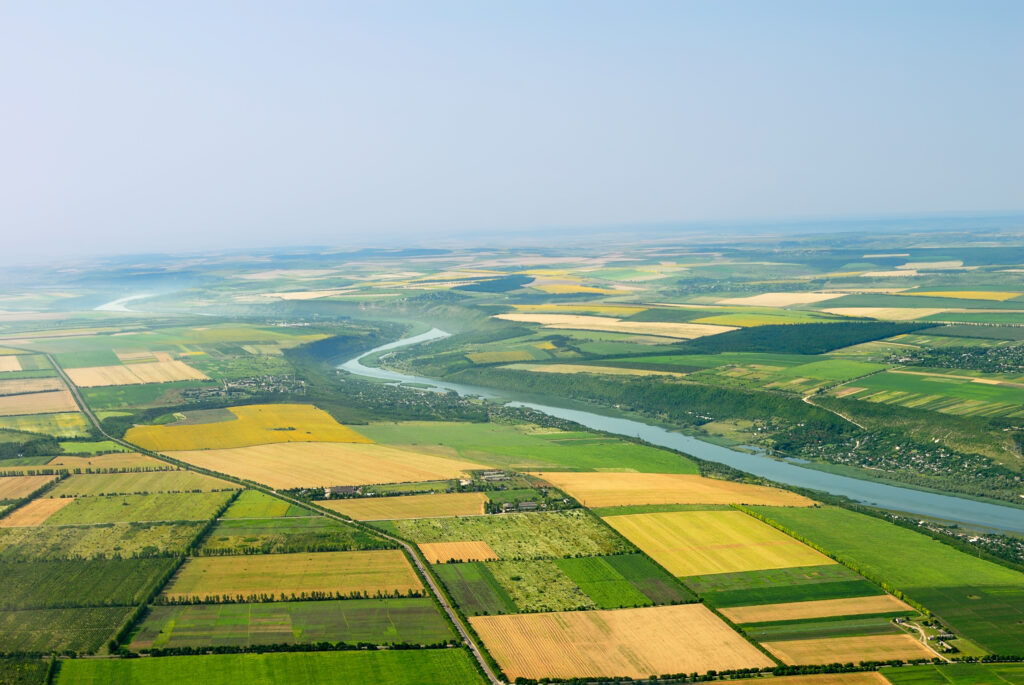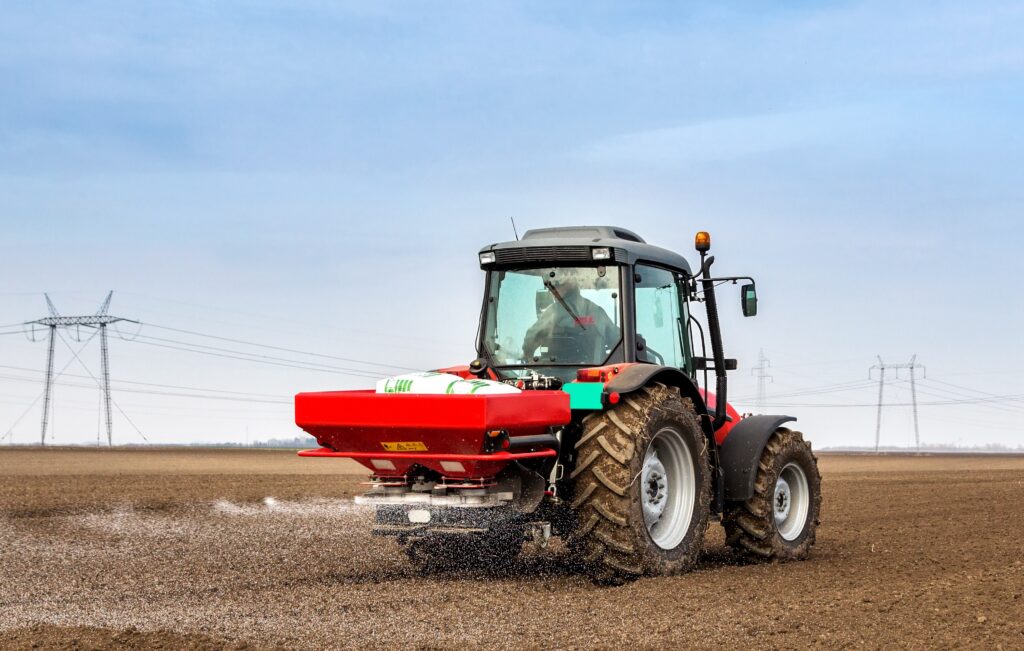Farm Action isn’t just advocating for farmers—we are farmers. While fighting for a fairer food system at Farm Action, more than half of our staff members are also farmers, providing valuable firsthand insights into the challenges faced by those we serve.
As spring kicks into high gear, our team is hard at work raising and growing nutritious foods, and we’re excited to share updates!
Sarah Carden, Research and Policy Development Director:
“My husband and I run an organic vegetable farm in New York’s Finger Lakes region, specializing in high-flavor varieties for both fresh markets and small-scale processing. We also produce a line of value-added frozen vegetable soups.
Spring has been slow to arrive this year, but the cold winter successfully winter-killed this strip of oats—a welcome result. As organic growers, we rely on cover crops to build soil fertility, organic matter, suppress weeds, and manage disease and pest pressure.
But without synthetic herbicides, terminating these crops in time for early planting can be tricky. Winter-kill oats offer a reliable solution that allows us to get into the field earlier.
This particular strip will be planted with kale in the next couple of weeks—destined for both a green powder processor and our farm’s Tuscan Bean soup.”
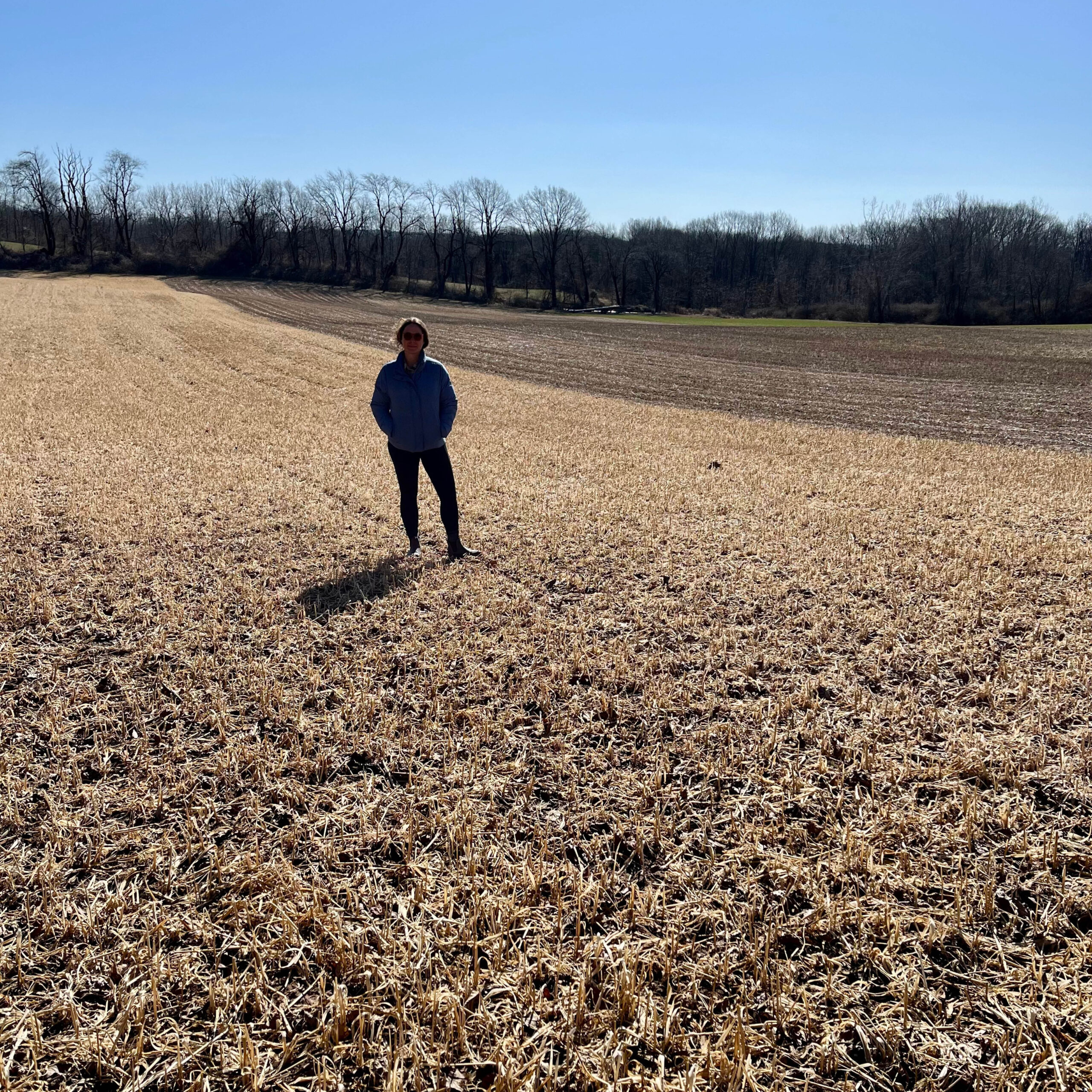
Sarah Carden on her farm in upstate New York.
Web Davis, Senior Policy Advisor
“Welcome to Missouri’s unpredictable weather—tilling the field has proven to be a muddy mess, but it is time to plant sugar snap peas, collards, and other early crops.
Once again, I went to Morgan County Seeds in Barnett, Missouri for seeds. I also went to T and S Greenhouse Supply near Clark, Missouri, for some seeds, and I ordered 100 Early Boy and 100 Early Girl seedlings for spring planting through a local farmer.
The Centralia Missouri FFA and Vo-Ag Class have been a reliable source of seedlings and are planting out varieties of tomatoes for me, along with some cucumber seedlings and jalapeno pepper plants. I encourage everyone to work with your local youth. This collaboration has worked well for me and provides both a great source of seedlings and a reduced cost to my operation.
Getting started at the proper time of the year has big advantages. I also have a potting shed along with the centerpiece of the operation, a 30 x 84 square foot high tunnel, with a 12 x 30 area for produce preparation. I have met with Lincoln University of Missouri staff to plan out some of this year’s crop along with collaborating with the Kansas Black Farmers Association.”
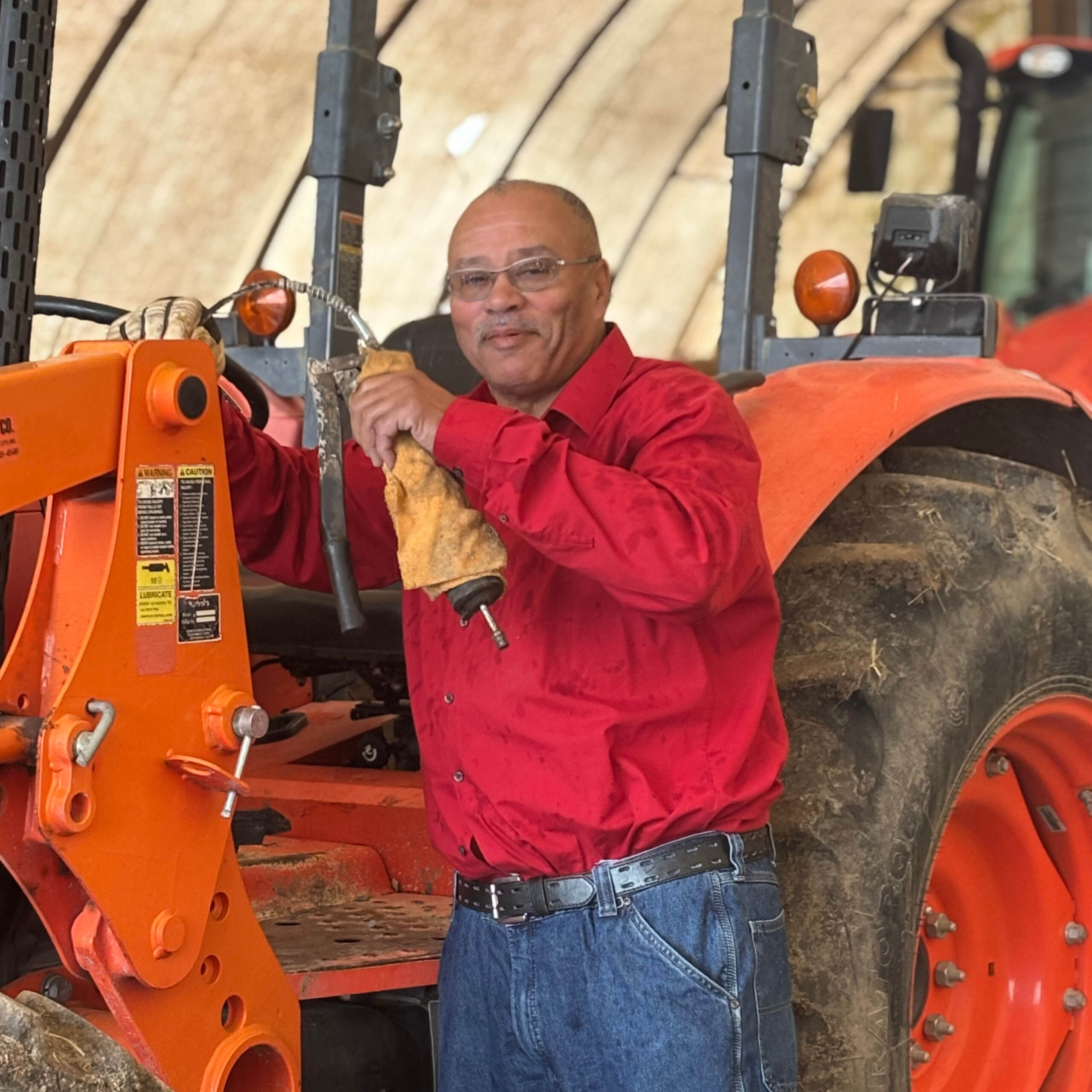
Web Davis at his farm in Missouri.
Angela Huffman, President and Co-Founder
“In 2018, I reintroduced sheep to my family’s farm after a 73-year hiatus. My great-grandfather’s flock had been sold in 1945 after his passing, and I was excited to bring sheep back to the farm.
From the start, I was dedicated to developing a top-quality flock of registered Katahdin breeding sheep. This meant careful selection and breeding to enhance traits like parasite resistance, strong maternal instincts, good bone structure, and beautiful coloring. To do this, I brought in bloodlines from reputable breeders in Ohio, Iowa, Kentucky, and Missouri.
Over the past seven years, I’ve worked to improve my flock’s genetics through selective breeding and careful record-keeping. This year, I’m thrilled to see the results of my efforts. The lambs born this spring are showing the traits I’ve worked towards, and I’m excited to see them thrive on pasture.”
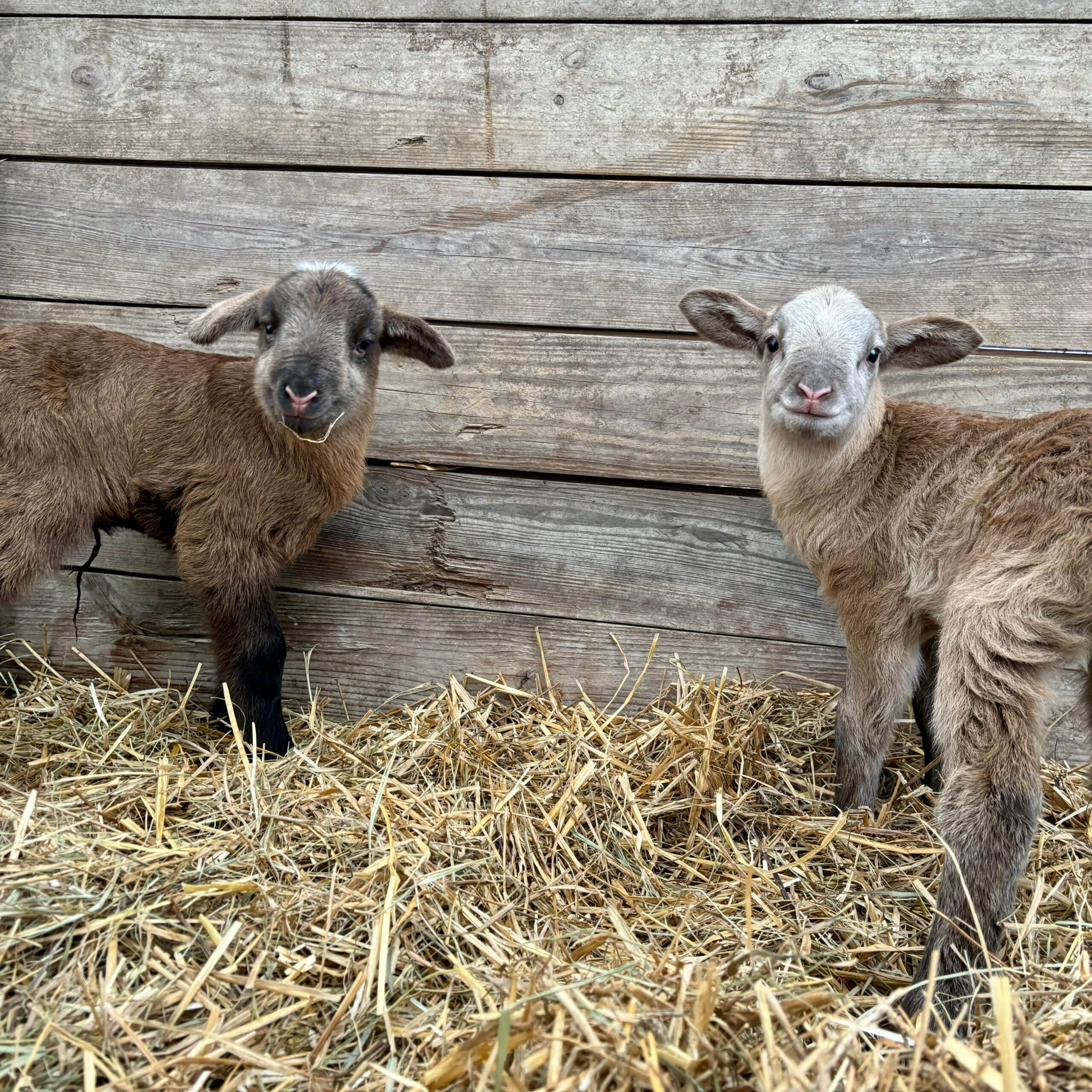
Angela Huffman’s newest lambs.
Christian Lovell, Senior Director of Programs
“We are enjoying spring here in West Central Illinois. Most of the larger registered Hereford cowherd consists of fall calvers, but we do have a small group of about 20 commercial cows that calve in March.
The mommas are doing well, their babies are growing fast, and they both are enjoying the warmer temperatures.
Earlier this month, we weaned all the fall calves and moved the fall calving cows to spring pasture where they will stay until August, when we will bring them home in preparation of calving. They will calve over a roughly 45-day window, with AI-sired calves coming mid-to-late September and the balance due through the end of October.
As things continue to green up around here, we are looking forward to the summer grazing season and beyond!”
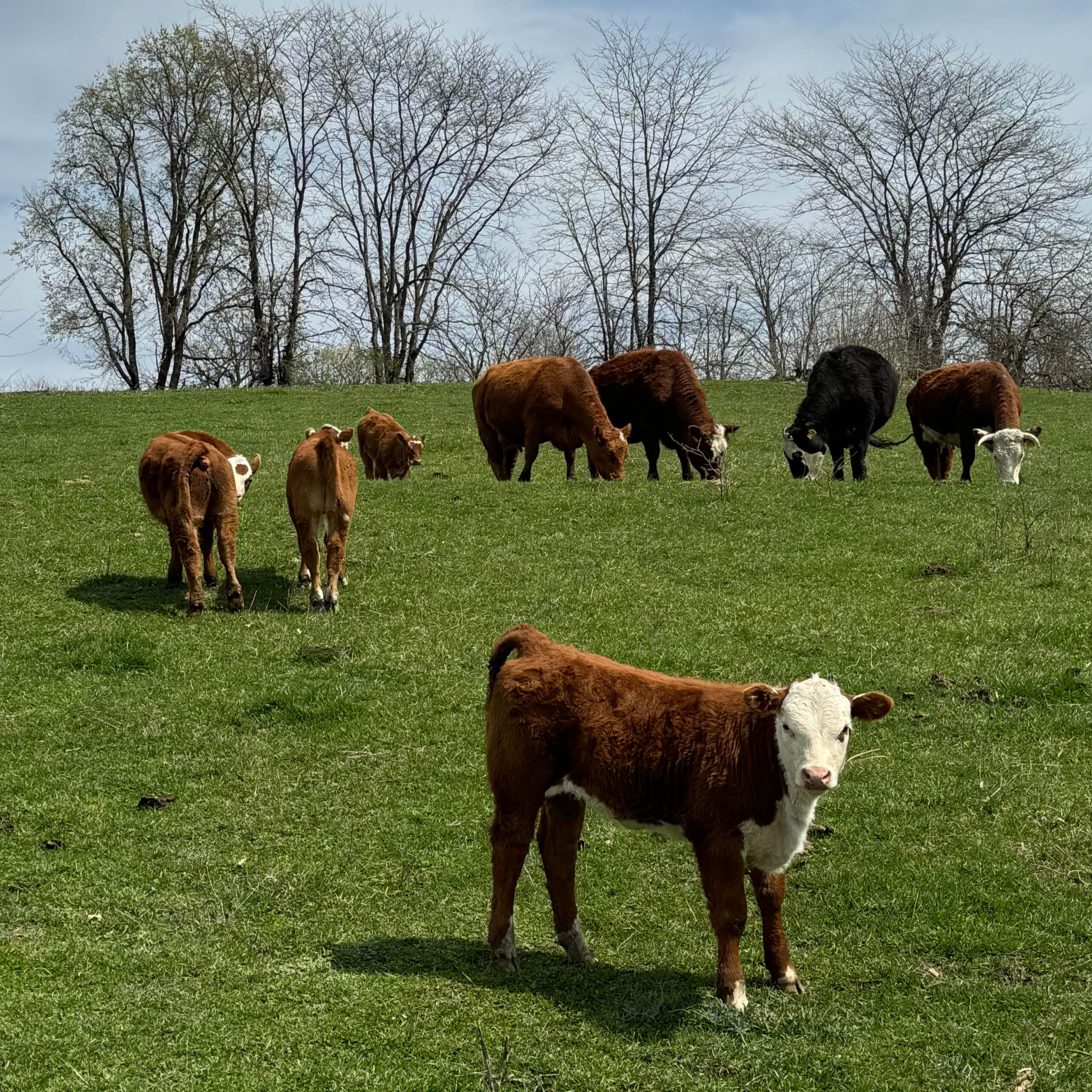
Some of Christian Lovell’s spring calves on his family farm in Illinois.
Joe Maxwell, Co-Founder and Chief Strategy Officer
“Farm operations in the Midwest often face limited options. Many farmers have shifted towards monocropping corn and soybean rotations, sometimes including other government-supported grains. This reliance often leads to a dependence on government subsidies for financial stability.
However, at our farm, we’ve chosen a different path: diversification. This year, we’re thrilled to announce a significant expansion with the launch of Rambling Hill, a new stable and equestrian center. We’re especially excited to welcome my niece, Lauren Stone, to the farm, who will be spearheading this new venture.
Rambling Hill will be a full-service boarding and training facility, specializing in training for Western pleasure, Ranch, and Reining horses. This revival of equine operations is particularly meaningful to me, as I raised and trained horses myself 30 years ago. I’m delighted to see Lauren bringing this passion back to our farm.
This new operation will diversify our farm’s income streams, providing a crucial buffer against the volatility of the heavily concentrated grain and livestock markets. By expanding our offerings, we’re not only securing our financial future but also ensuring a place for the next generation to thrive on our land.”
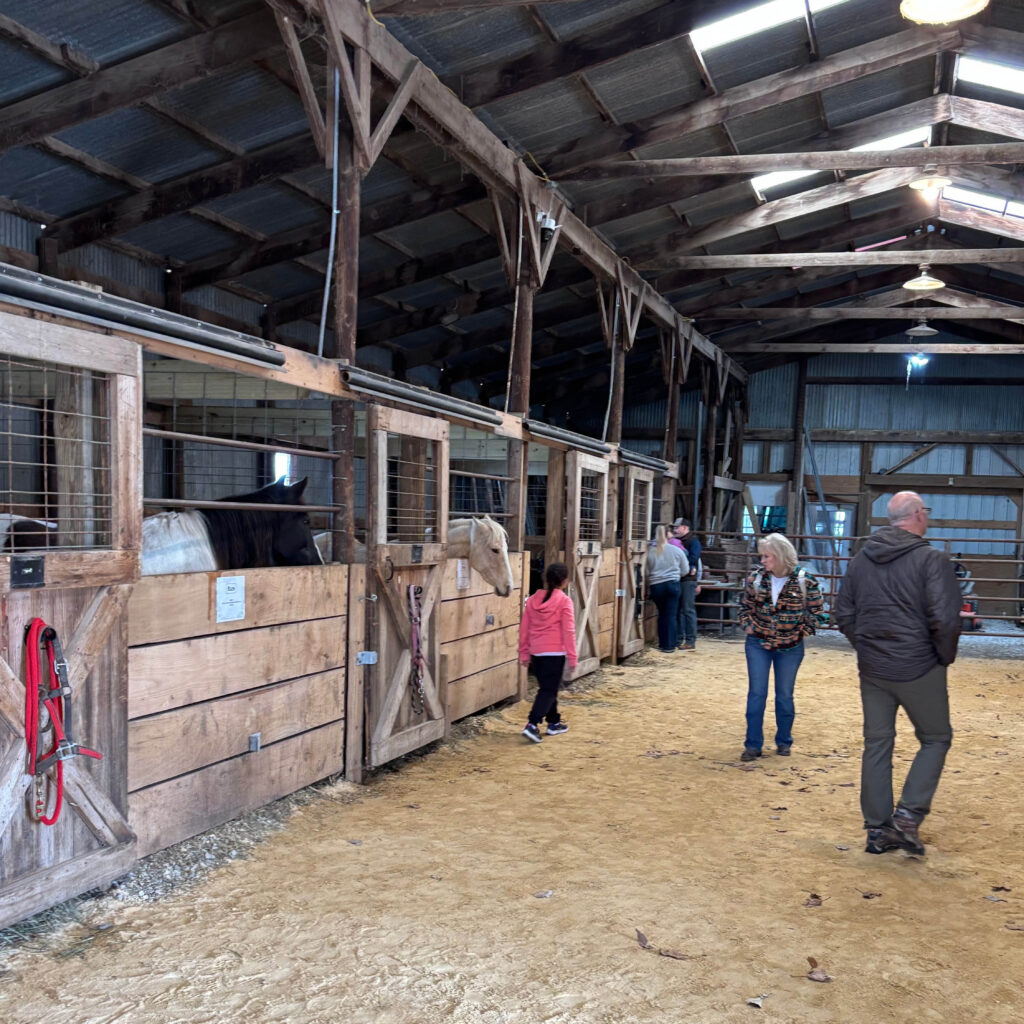
Joe Maxwell’s new stables at his family farm in Missouri.

